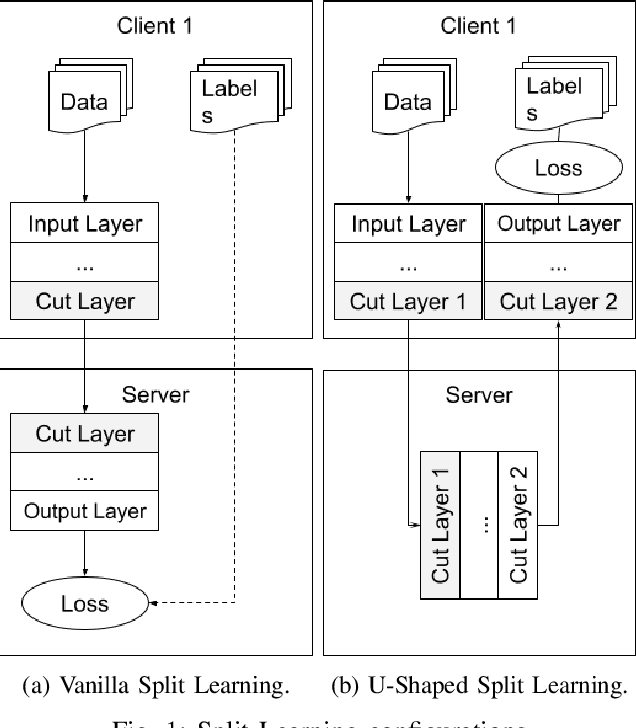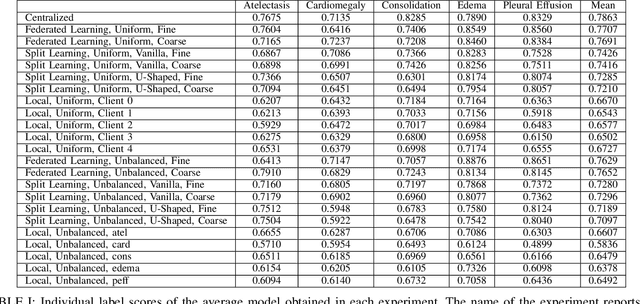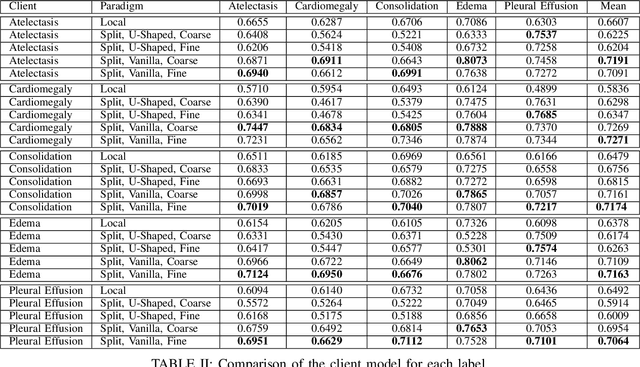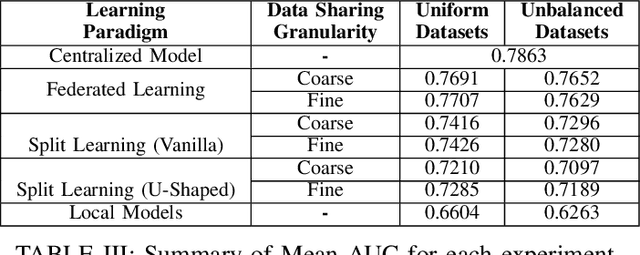Michele Cataldo
Distributed Learning Approaches for Automated Chest X-Ray Diagnosis
Oct 04, 2021



Abstract:Deep Learning has established in the latest years as a successful approach to address a great variety of tasks. Healthcare is one of the most promising field of application for Deep Learning approaches since it would allow to help clinicians to analyze patient data and perform diagnoses. However, despite the vast amount of data collected every year in hospitals and other clinical institutes, privacy regulations on sensitive data - such as those related to health - pose a serious challenge to the application of these methods. In this work, we focus on strategies to cope with privacy issues when a consortium of healthcare institutions needs to train machine learning models for identifying a particular disease, comparing the performances of two recent distributed learning approaches - Federated Learning and Split Learning - on the task of Automated Chest X-Ray Diagnosis. In particular, in our analysis we investigated the impact of different data distributions in client data and the possible policies on the frequency of data exchange between the institutions.
 Add to Chrome
Add to Chrome Add to Firefox
Add to Firefox Add to Edge
Add to Edge